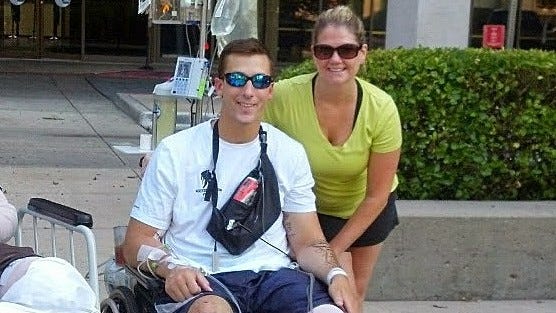
Changes to the Department of Veterans Affairs Program of Comprehensive Assistance to Family Caregivers will be reviewed by Deputy VA Secretary Donald Remy to make sure that those currently participating in the program are treated fairly as the program is set to expand.
Under the changes, a caregiver's benefits will be eliminated if a veteran or their caregiver works outside the home. A veteran must also have a minimum 70% disability rating to receive benefits and fail to achieve their Activities of Daily Life independently 100% of the time.
“We work for caregivers, we work for the veterans,” said VA Secretary Denis McDonough, who made the review announcement during his monthly press conference on Feb. 16. “We want to make sure that they’re getting the information they need and clarity about why we’re making the decisions we’re making.”
A coalition of around 20 veterans service organizations has formally objected to changes in the program, which provides monthly payments to those who care for veterans who can not take care of their own basic needs.

VA anticipates more than 6,500 families will no longer be eligible for the program due to the planned changes.
“As I testified to Congress, I am worried that we do not reduce participation through the review, but that in fact, we increase it by as much as we can,” McDonough said.
The program will expand to include support for caregivers of veterans who served between the Vietnam War and Afghanistan beginning in October, he added.
Remy’s review is expected to take several weeks to complete. McDonough predicted that caregivers “will be a bigger part of the backbone as our aging veterans demonstrate that they, like the rest of the country, want to age in place. And so we want to get this right.”
During the press conference, McDonough also addressed the agency’s COVID-19 vaccine requirement for its employees.
“The data continues to show that vaccination has had dramatically improved outcomes for veterans and our workforce, especially during Omicron,” he said.
The highly contagious Omicron variant of the coronavirus left thousands of VA employees unable to work each day in January. That number has since dropped.
The agency is currently working through a six-step disciplinary process that will take place over a 3-month period for employees who refuse the vaccine.
“No one has been fired, no one has been suspended, but we are now in that process,” he said.
McDonough added the agency needs help from Congress in adjusting pay caps for employees, particularly nurses.
“This is important not only because not only do VA workers deserve it but also because it's critical for the functioning of the VA,” he said.
McDonough also urged Congress to pass a budget for the VA this fiscal year and not a year-long continuing resolution.
“If we end up with a full-year CR, we will have a $1 billion shortfall in the community care budget,” McDonough said. “At the moment, we are not necessarily feeling the pinch of that, but under a full-year CR we would.”
A continuing resolution would also leave VA unable to hire claims processors and fill other positions.
Reach Julia LeDoux at Julia@connectingvets.com.


